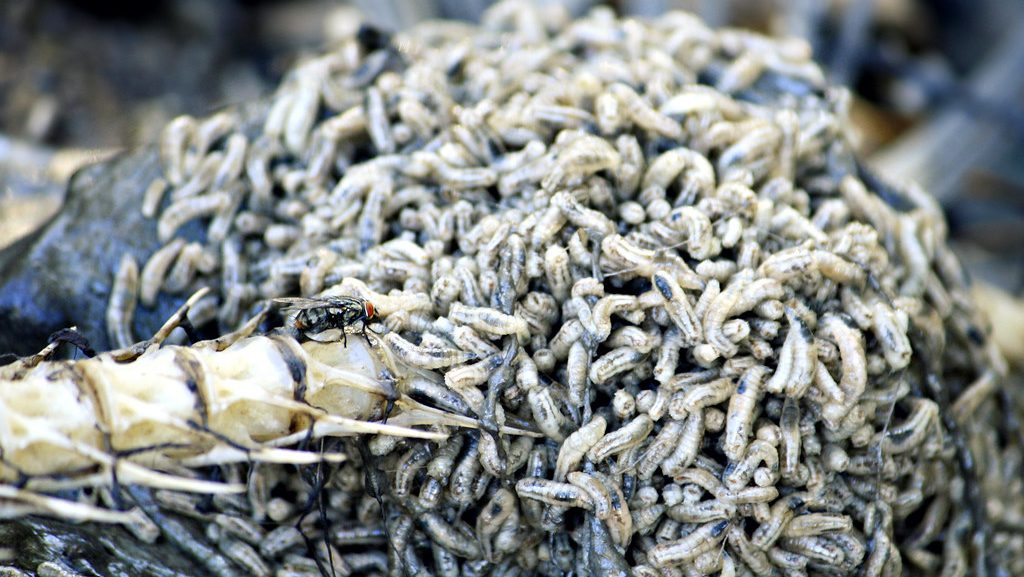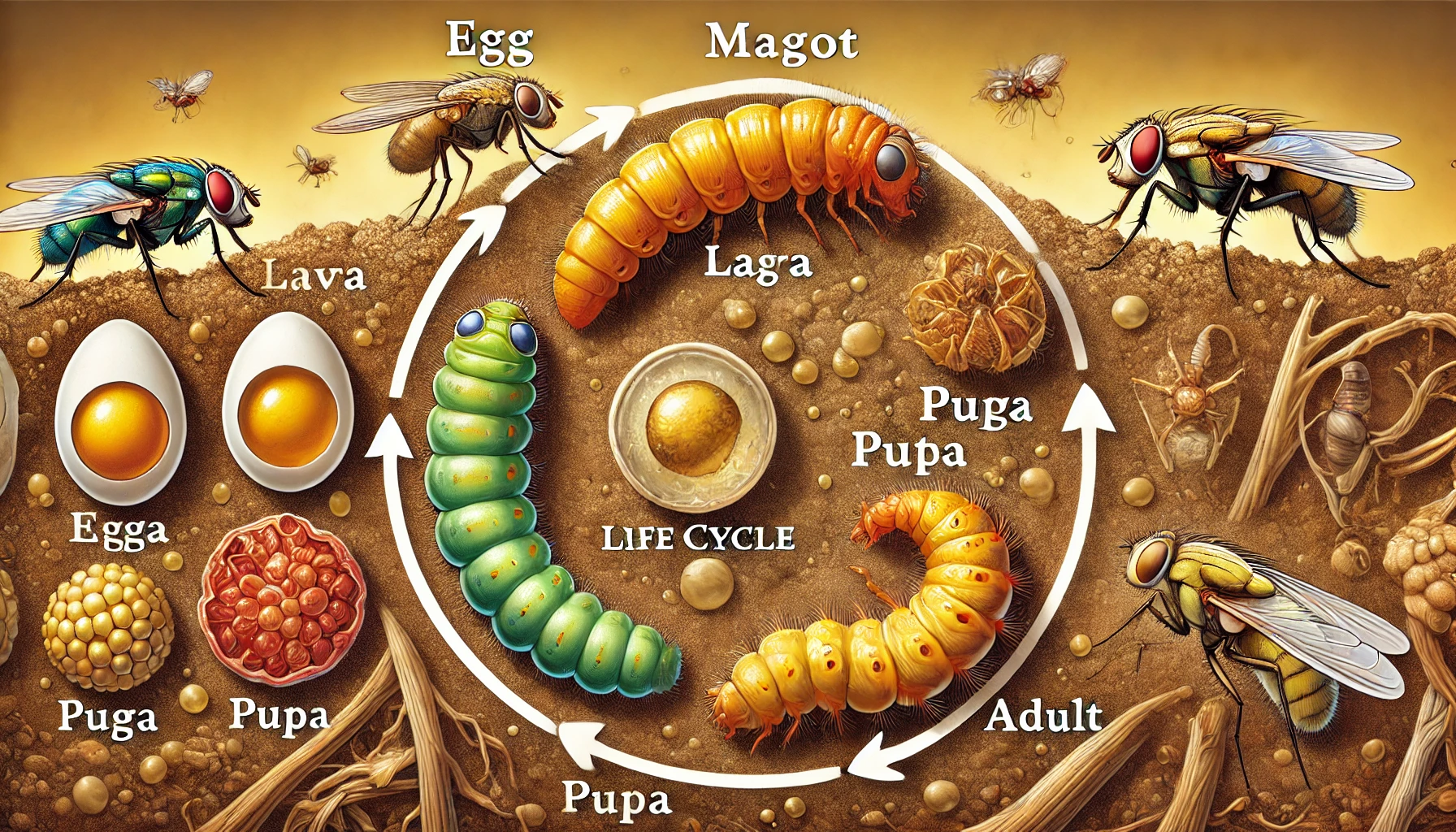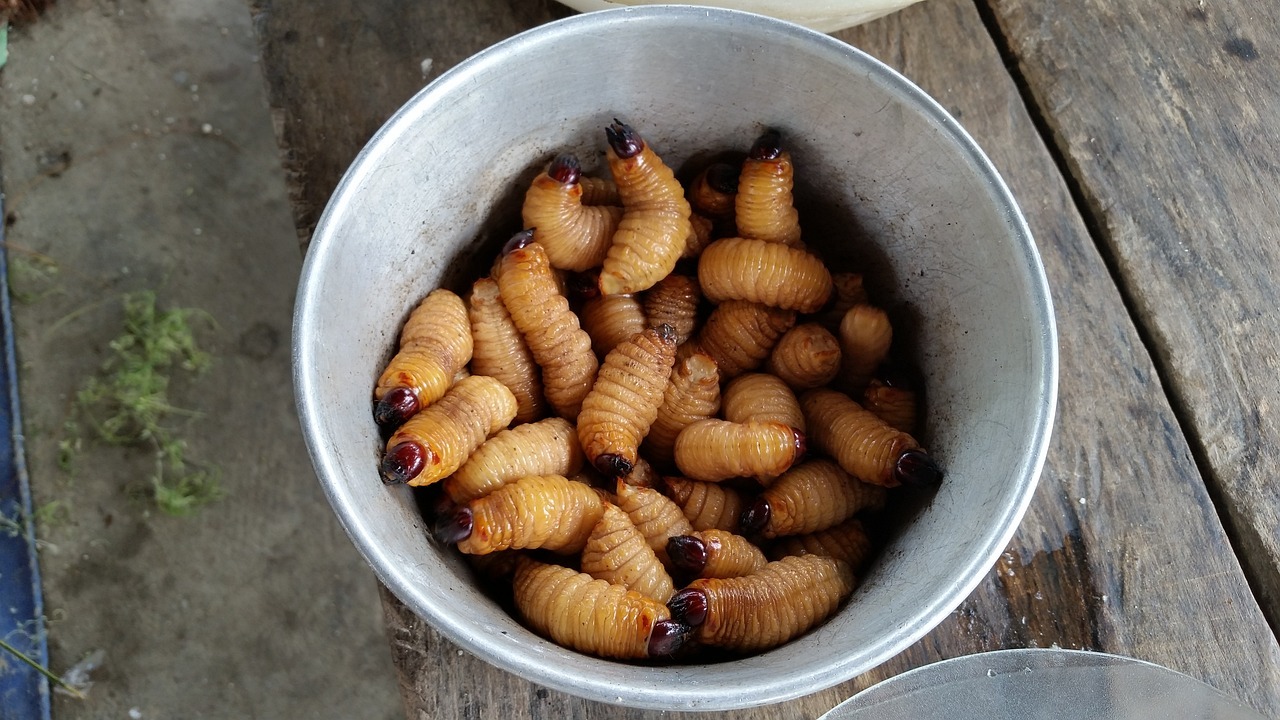Key Takeaways
-
Maggots are the larvae of flies: They hatch from eggs laid by adult flies on decaying organic matter like food scraps, trash, or compost piles.
-
Maggots don’t appear out of nowhere: They come from eggs laid by flies, debunking the myth of spontaneous generation.
-
Common places maggots are found: Trash bins, unwashed dishes, pet waste, and unmanaged compost piles are prime spots for fly egg-laying and maggot infestation.
-
Maggots play a vital role in the ecosystem: While unwelcome in your kitchen, they help break down organic matter and recycle nutrients in nature.
-
Preventing maggot infestations: Regular cleaning, proper waste management, and sealing trash bins can help keep flies and maggots at bay.
 Maggots. Chances are, you’ve stumbled across them at some point. Maybe they were hiding in a forgotten trash can, lurking in a compost pile, or—unfortunately—crawling around in your kitchen. They can seem like they just show up out of nowhere, but there’s actually a straightforward reason why they appear.
Let’s take a closer look at where maggots come from, why they seem to pop up in certain spots, and what they can tell us about the state of our homes.
Maggots. Chances are, you’ve stumbled across them at some point. Maybe they were hiding in a forgotten trash can, lurking in a compost pile, or—unfortunately—crawling around in your kitchen. They can seem like they just show up out of nowhere, but there’s actually a straightforward reason why they appear.
Let’s take a closer look at where maggots come from, why they seem to pop up in certain spots, and what they can tell us about the state of our homes.
Maggots: The Larvae of Flies
First off, let’s clear something up: maggots aren’t some weird, mysterious creatures. They’re simply the baby stage of flies. Yes, those annoying houseflies, blue bottle flies, and blowflies. These little guys are nature’s cleanup crew—they help break down rotting food and other decaying materials.

Not getting a solution?
Get your free pest control estimate today!Life Cycle of Maggots: From Eggs to Flies
-
Eggs: Female flies lay their eggs in decaying food or garbage, making open trash cans and old food scraps perfect breeding grounds.
-
Hatching: Within 24 hours, the eggs hatch into tiny white maggots that immediately start feeding on the surrounding decaying material.
-
Growth: As maggots grow, they continuously shed their skin and consume waste, helping decompose organic matter.
-
Pupating: Maggots seek a dry location to form a pupal case, where they undergo transformation into adult flies.
-
Emerging as Flies: Adult flies emerge from their pupal shell, ready to lay eggs and repeat the life cycle.
Common Places Where Maggots Thrive
-
Trash Bins: Garbage left sitting too long, especially with food scraps, attracts flies, leading to maggot infestations.
-
Pet Waste: Unattended pet food or waste provides an ideal spot for flies to lay eggs, resulting in maggots.
-
Unwashed Dishes: Dirty dishes with food residue can become a breeding ground for flies if left unattended.
-
Compost Piles: Improperly managed compost can attract flies, creating the perfect conditions for maggots to develop.

Maggots Don’t Appear Out of Thin Air
It may seem like maggots just appear out of nowhere, but that’s actually a myth. A long time ago, people believed in something called spontaneous generation—the idea that maggots just magically showed up on rotting food. But this was debunked centuries ago by a scientist named Francesco Redi, who proved that flies are the ones responsible for laying eggs that eventually hatch into maggots. So, the next time you spot a maggot, remember: it didn’t just appear out of thin air. It came from a fly that laid its eggs on something rotting nearby.What To Do If You Find Maggots
If you do find maggots in your home, don’t panic. It’s a sign that there’s probably some decaying organic matter nearby, and it’s important to clean up.Effective Steps to Eliminate Maggots
-
Clean the Area: Thoroughly wash affected areas with hot water and soap, then disinfect to remove any remaining eggs.
-
Dispose of Contaminated Food: Immediately discard any food infested with maggots to prevent further spread.
-
Keep Your Home Clean: Regularly clean your kitchen and trash bins, and remove garbage frequently to deter flies.
-
Seal Your Trash: Ensure trash bins have tight-fitting lids to prevent flies from accessing and laying eggs.
A Reminder of Nature’s Cleanup Crew
While maggots might be creepy, they’re actually doing an important job in nature. They break down dead plants and animals, turning them into nutrients for the soil. And in some places, maggots are even used to help manage waste! In fact, there are companies that use maggots to process food waste and create protein-rich feed for animals.So, while having maggots in your kitchen is definitely unwelcome, it’s good to remember that they do serve a purpose in nature’s grand plan. If you feel things have gone out of control, it is advised to contact pest control professionals. Our team can provide a customized approach to protect your home effectively. Visit our Species, Control, and DIY Guide sections for additional resources on flies and ways to tackle a fly infestation. Prevention techniques might not be enough if you’re already dealing with an infestation in your home. Our pest control professionals provide a customized solution to protect your home effectively.





